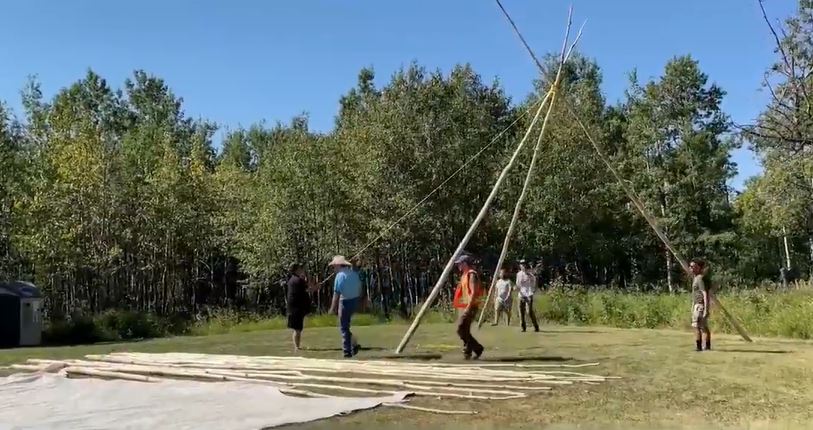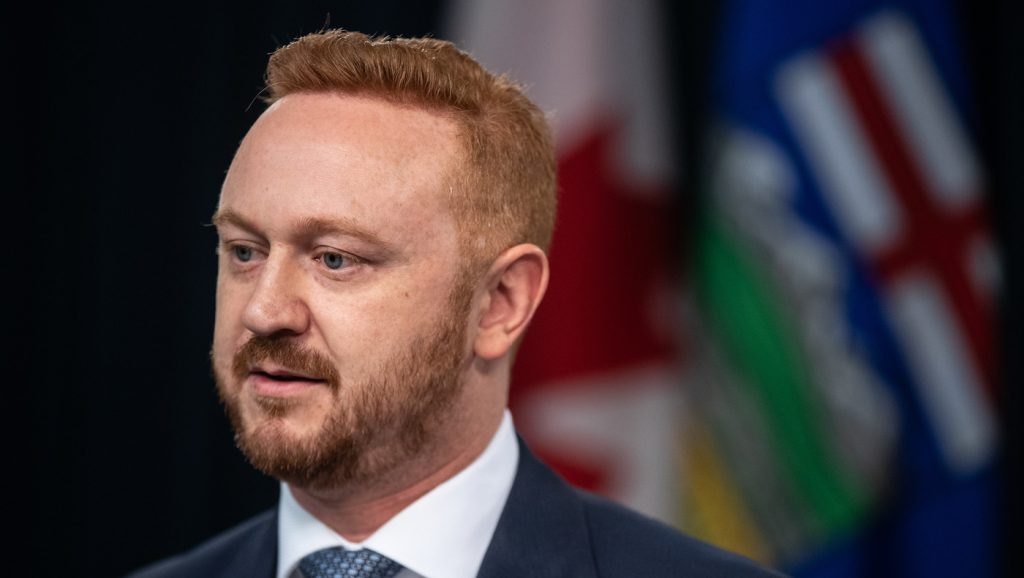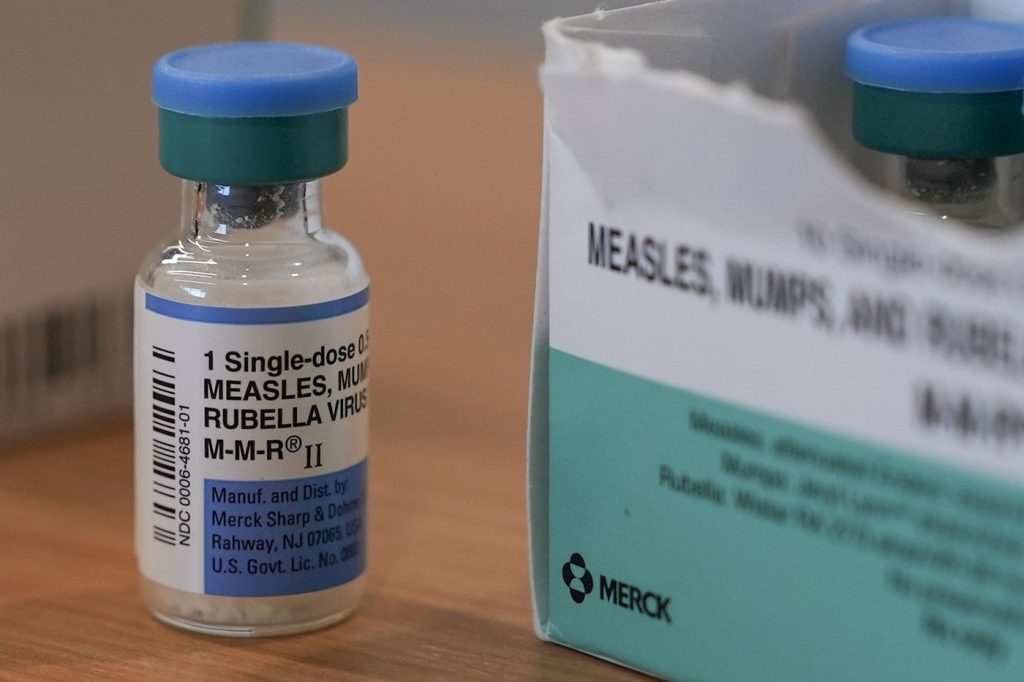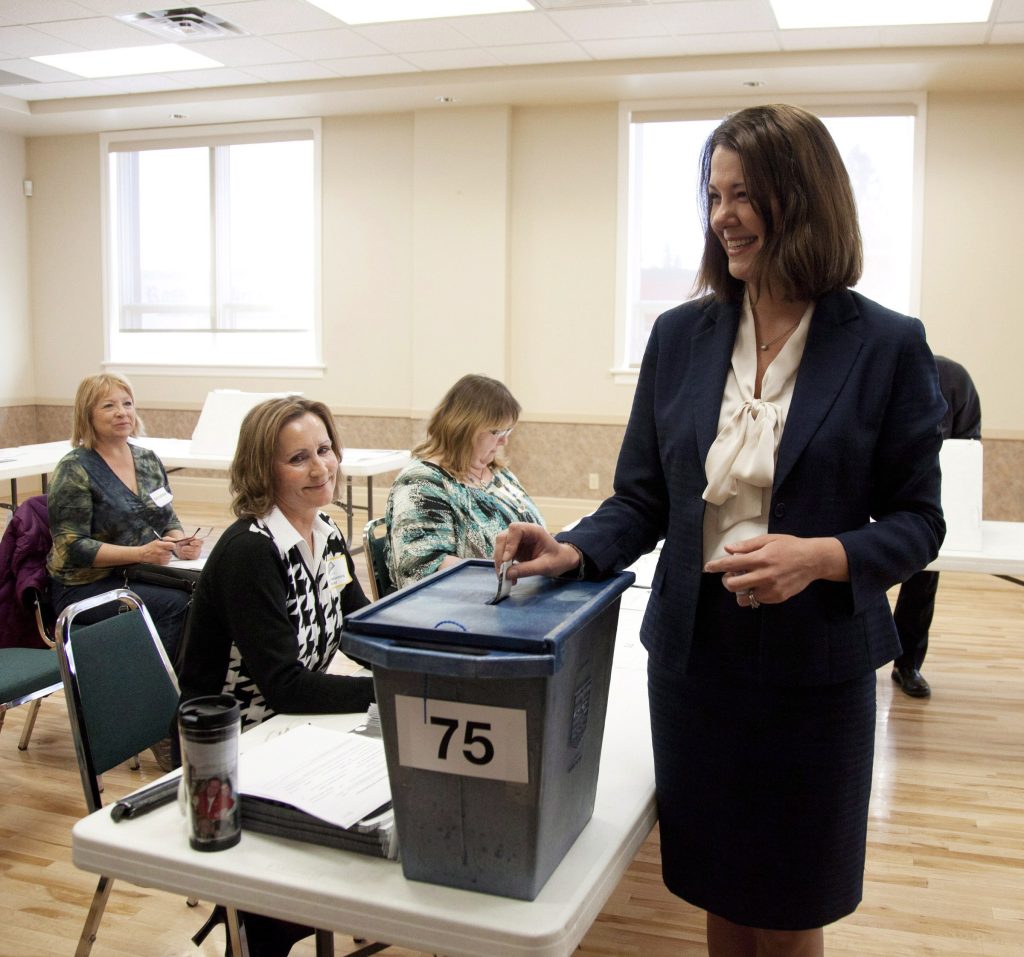Papaschase descendants gather for 1st time in 136 years on traditional lands east of Edmonton

Posted September 3, 2022 10:50 am.
Last Updated September 3, 2022 10:58 am.
This weekend marks the first time in 136 years that descendants of the Papaschase Band Indian Reserve #136 will be gathering on their traditional lands.
The three-day cultural camp, led by the Papaschase First Nation, is about reuniting for the sake of tradition and culture.
“We haven’t had this kind of cultural gathering where we just simply celebrate our culture,” said Papaschase First Nation Chief Darlene Misik. “Our cultural ways, our cultural practices, and that comes through our elders who are present here as well.
“We’re going to be medicine picking, we’re going to be cooking traditional foods, and we’re going to be renewing the kinship amongst us.”
A 30-foot tipi was erected at the Strathcona Wilderness Centre on Friday to kick off the cultural camp.
“A lot of times people are not even aware of where Papaschase is…” said George Quinn, a direct descendant to Chief Papaschase. “But right now we’re standing in the Beaver Hills area and this is where our traditional lands were within Papaschase. It was our ancestral hunting grounds, ceremonial grounds as well.”

Building a 30-foot tipi at the Papaschase First Nation on Sept. 2, 2022. (Credit: CityNews/Sarah Chew)
For one residential school survivor, it’s expected to be a long weekend of learning and gaining back her culture.
“I was there from six to 13, I lost all my culture. I knew nothing,” said Frances St. Jean. “I was raised by white nuns, white priests, white foster homes, the whole thing. So I am just learning my culture now.”
In addition, it’s a chance to meet and connect with other descendants of Papaschase.
“That’s where I feel the most excited,” added St. Jean. “Because I’m learning all about our relatives – everyone here is related. We’re all from the same Papaschase band.”
Descendants of Papaschase, as well as the public, are invited to attend, observe and participate in the cultural activities.
“I think that by having us here, we have a better understanding of not only where we come from, but what we can share and knowledge and understanding,” said Quinn.








